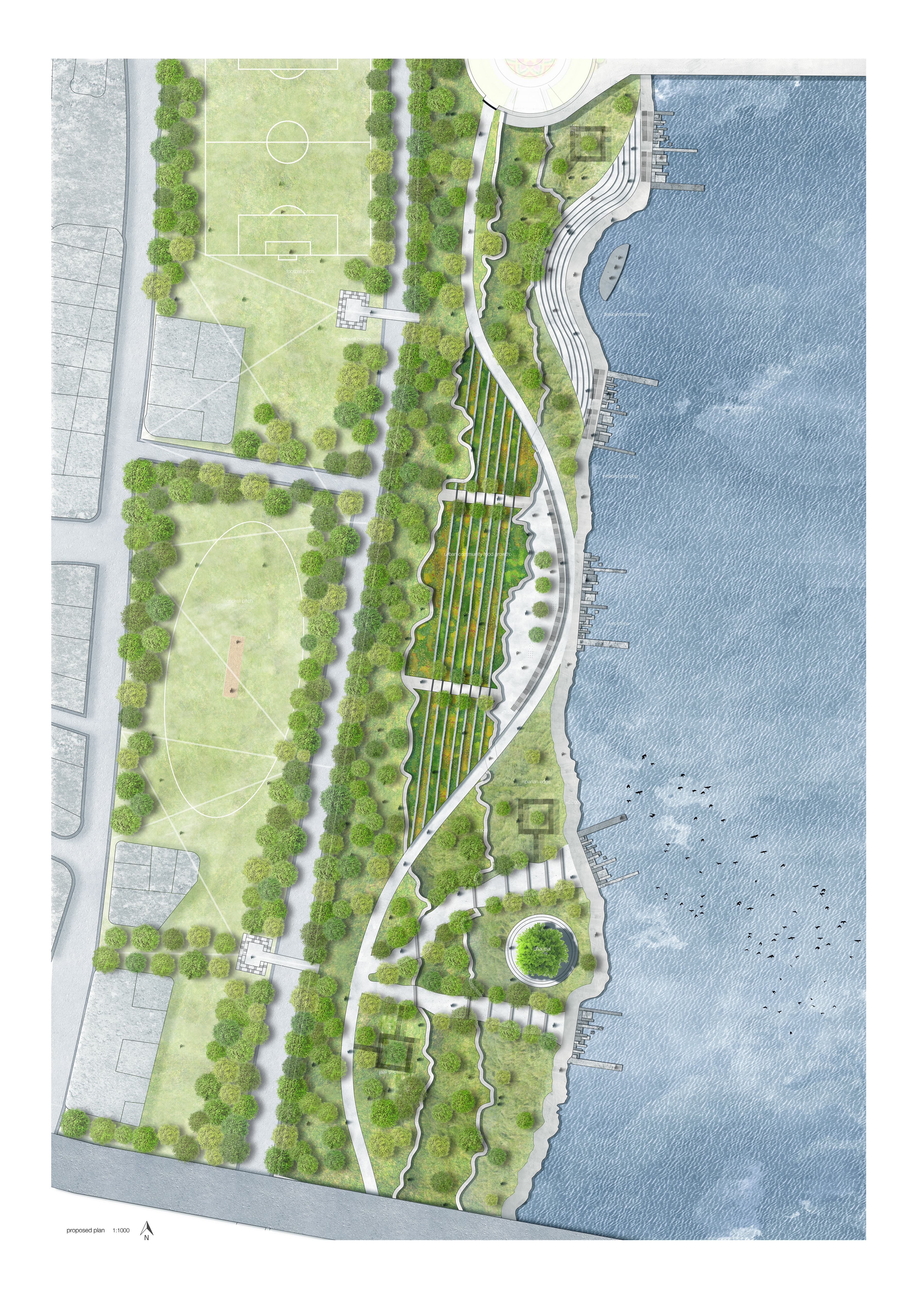
Reinstating the Sabarmati
MLA Landscape Architecture
Kingston University, London
The Sabarmati Riverfront Development Project in Ahmedabad, India was completed in 2012 in an attempt to clean up the river and make it more accessible to the public. Whilst in a sense this has been achieved, there were many problems with the orignal development. These include the unsuccessful rehousing of riverfront slum dwellers, inaccessiblity of large areas due to entry fees, the presence of large concrete barriers through the site, and both the damming and canalisation of the river turning the Sabarmati from a wild, seasonal river into a linear lake.
My proposal seeks to right some of the wrongs of the original development by creating a democratic public space that is accessible to all, encourages social cohesion, and evokes the memory of the river before this drastic development. The shape of the three key terraces in the design are derived from examples of the river edge before development during three key times of the year - and anticipate a future return to seasonality. Ghats and river steps are used to restore the connection to the river and create spaces for human congregation. Chaupals, traditional secular forms of indian public space, which lie under the shade of a large banyan tree, encourage social interaction between different communities such as Hindis and Muslims as well as LIGs/MIGs. Urban community food growth and events spaces also encourage these groups to come together for a shared purpose. Far more vegetation will be used, including wetland planting which helps to clean up the river.
